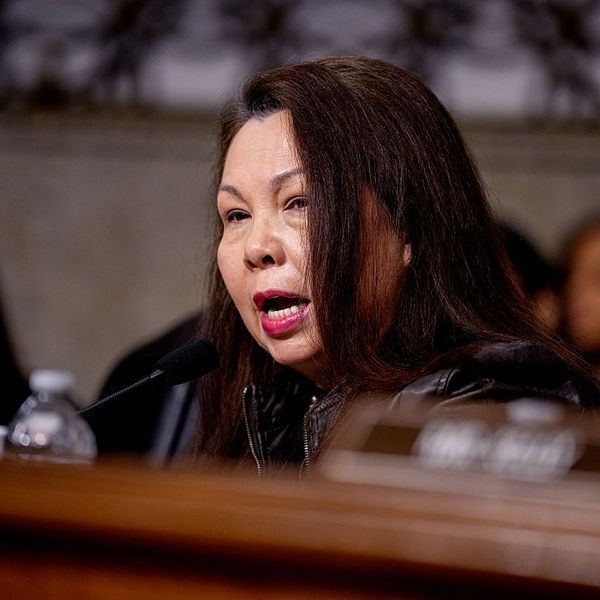There has been a recent stir of controversy in Canadian media over a public letter signed by 15 Professors from the University of Regina opposing their university's participation in a scholarship program reserved exclusively for the offspring of soldiers that died in war. 46 other colleges and universities from all over Canada are currently participating in the program. The professors' stance make U of R the only university so far to express public criticism of the program, and the professors have accordingly come under hot fire from government representatives, Canadian veterans, and other individuals for opposing their university's support of the program. They have yet to back down.
The signatories believe that:
... support for "Project Hero" represents a dangerous cultural turn. It associates "heroism" with the act of military intervention. It erases the space for critical discussion of military policy and practices. In signing on to "Project Hero", the university is implicated in the disturbing construction of the war in Afghanistan by Western military- and state-elites as the "good war" of our epoch. We insist that our university not be connected with the increasing militarization of Canadian society and politics.
The professors also encourage public debate on their position and call for:
A public forum on the war in Afghanistan and Canadian imperialism more generally to be held this semester before exams begin.
Professor Garson Hunter, a former soldier, argues that the scholarship program (cofounded by former Chief of the Defence Staff Rick Hillier who encouraged increased military funding upon leaving his position in 2005) uses the memory of fallen soldiers to "aggrandize military endeavours in Afghanistan" and "If they really want to help then they should provide help for soldiers affected by post-traumatic stress disorder."
In an impassioned letter defending his position after being barraged with hostile emails (some including violent threats) Professor John F. Conway writes:
Project Hero is part of the ongoing propaganda offensive from the militaristic, pro-war cabal led by Prime Minister Stephen Harper and the former chief of defence, retired general Rick Hillier. From the beginning, this propaganda offensive sought to silence criticism of the war by equating it with a failure to support our troops. Efforts to turn this into a heroic battle will fail. Many Canadians are ashamed of Canada's role in this dirty, savage war which pits the random techno-barbarism of advanced warfare against a poorly armed insurgency. For this the blame lies with the government and our spineless Parliament, not our troops carrying out their orders.
Conway adds:
We did not win our democracy, thanks to the military. The military was among the dominant forces from which Canadians had to wrest democracy. All too often the price exacted was paid in Canadian blood on Canadian soil.
Democracy is in danger when war is glorified, when the military has a big say in determining government policy, when dissent is met by threats and attacks, when history is rewritten, the role of the military in civil society is elevated, and we are called upon to worship thankfully at its feet.
Even though Canada has a small military and is not nearly as immersed in the culture of war worship as the US, the current Conservative government has implemented significant funding increases to the Canadian Forces with direct attempts to promote it to the population through the education system and the media. During the Bush Administration Harper made obvious moves to enhance relations with the US, increased military support for the US's war on Afghanistan being one of them. While it was the Liberal Party of Canada that took the Canadian Forces into Afghanistan in 2001 (they also made the important decision not to participate in the war on Iraq), Canada's military role (as opposed to its involvement in what is often characterized as humanitarian work) was most strengthened with initiatives brought forth by the Conservatives when Harper became Prime Minister in 2006. Since 2001 polls have indicated that a majority of Canadians have supported Canada's involvement in Afghanistan (there have been some fluctuations) while favouring "nation-building" over military operations. Canadians have also remained committed to withdrawing sooner rather than later. No doubt aware of Canadians' professed desire to leave Afghanistan, the Conservatives recently reiterated that they will end military operations in Afghanistan in 2011, even despite calls made by the US for Canada to stay.
Canadians have shown decreased involvement in the political process (the 2008 elections resulted in the lowest voter turnout in Canadian history) but as shown by the professors at U of R, dissent is alive and kicking in Canada. Even from a Prairie province where the Conservatives have historically enjoyed widespread support, people are speaking out against the increasing militarization of Canadian society, something which many view as harmful to Canadian culture as a whole. For members of the Canadian academic community to take such a stance in a province dominated by pro-militarism and amidst a political atmosphere of general support for Canada's military operations in Afghanistan is no small matter. Indeed, these professors have proven that their concern for the youth they are employed to educate goes beyond their desire to advance their career goals or a need to remain silent to avoid criticism. They have been criticized for dishonoring their country with the position they have taken, but many Canadians would agree that they are in fact attempting to preserve the most honorable merits of Canadian culture. In the words of the social critic and feminist activist Barbara Ehrenreich:
No matter that patriotism is too often the refuge of scoundrels. Dissent, rebellion, and all-around hell-raising remain the true duty of patriots.
To express solidarity please send letters of support for the Regina 15, and against Project Hero and Canadian imperialism, to University of Regina President Vianne Timmons, Vianne.Timmons@uregina.ca and Vice-President Academic, Gary Boire, Gary.Boire@uregina.ca. Please copy jeffery.webber@uregina.ca.


